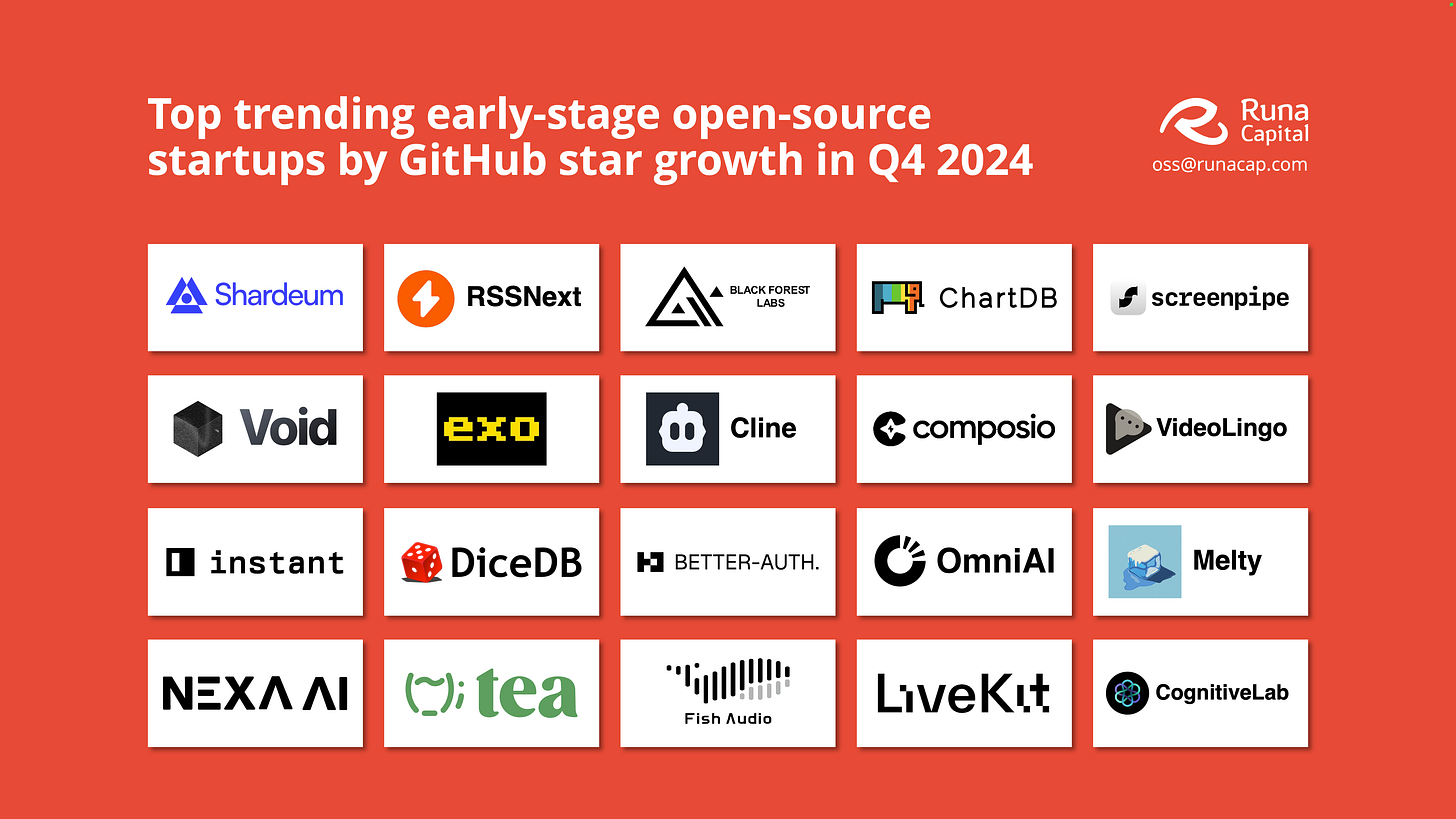Runa Capital - 2024 Q4 Newsletter
Portfolio Momentum and Game-Changing Deals Driven by Long-Term Conviction
Highlights
AI training costs are trending downward, shifting long-term value from LLM builders to those creating AI applications - where the real margins lie.
Among them, AI agents are already reshaping industries and drawing heavy VC interest.
But while infrastructure costs are falling, demand for compute keeps climbing. The bottleneck? Chip architectures that simply don’t scale. We believe the next wave of data centers won’t be powered by silicon alone - they’ll be built on optical computing.
Our conviction in open source is growing. In Q4, we backed three new companies — Twenty, Keep, and Ubitium — all leveraging open-source strategies to take on incumbents and win.
Our portfolio keeps gaining momentum: four companies — Zopa, SuperAnnotate, Sydecar, and Akhetonics — secured follow-on funding from top-tier investors like NVIDIA, Databricks, and A.P. Moller, fueling their next stage of growth.
Macro Tech Trends in 2025
Rise of Open Source AI. Runa’s General Partner Konstantin Vinogradov shared with InfoWorld that open-source AI models are boosting the global AI ecosystem, as they address key AI challenges — such as transparency, adaptability, and security — more efficiently than their closed-source peers, like OpenAI and Anthropic.
Large enterprises have to customize AI to their specific needs to maximize their value — whether by building tailored AI infrastructure, fine-tuning models on proprietary data sets, or building AI agents for specialized tasks.
Open source is exceptionally well-positioned to address these demands, and the future of AI is going to be open. Each month, new AI infrastructure companies emerge, and the current top AI OSS projects developed by startups (measured by yearly active contributors on GitHub) consist of LangChain, LlamaIndex, Hugging Face, Dify, and Ollama.
Building AI Applications is Becoming Cheaper. In just three years, the cost of large language models has dropped by 60x, thanks to a wave of new models - many open source, like Llama and DeepSeek. This shift allows founders to develop AI applications at a fraction of the cost while keeping more of the margins.
The founder of our open source portfolio company Mehdi Osman told Bloomberg News that DeepSeek’s low prices could lure developers away from OpenAI during 2025, while Runa’s APAC expert Denis Kalinin echoed this view in a discussion with Sifted/FT, highlighting security and privacy concerns.
The AI Boom Still Needs More Chips. Even as AI training costs decline, demand for GPU compute is skyrocketing - just like IT spending kept rising when AWS and Google Cloud drove down computing costs in the 2000s (hello, Jevons paradox).
McKinsey projects that by 2030, generative AI will need 25x10³⁰ FLOPs (floating point operations) of compute - 125x more than today. Meeting that demand will require entirely new compute architectures.
Quantum Breakthroughs. AI grabs headlines, but quantum computing tackles the hardest problems AI alone can’t solve — from optimizing supply chains to detecting cyber threats.
Those were the words of Pasqal CEO, Georges-Olivier Reymond, speaking to the Financial Times in February, responded to a column about AI overshadowing quantum.
Microsoft and Google have recently unveiled their new quantum chips, but as our deep tech investor Francesco Ricciuti explained to CNBC, they are great scientific achievements that pave the way for quantum computing to unlock its potential.
Meanwhile, quantum startups like Pasqal are already deploying in Europe’s top supercomputing centers. While AI sprints, quantum is laying deep foundations. At some point, the flashy AI boom will hit limits, leaving quantum to drive the next breakthroughs.
The AI Agent Frenzy. AI agents — autonomous tools that handle tasks without human input - are capturing global VC attention. In the latest YC batch, nearly half of the startups were focused on this technology, signaling a major shift in the AI landscape.
To cut through the noise, our Associate Denny Gabriel shared with Sifted the most promising AI agent startups that he’s seeing on the market:
🇫🇷 H Company — automating complex workflows and tasks; its product outperforms OpenAl's GPT-4o and Anthropic's Computer Use Agent while also being cheaper.
🇨🇭 Nevermined — decentralized Al payments protocol focused on enabling payments between agents themselves, positioning itself as the "PayPal for AI”.
🇩🇪 Juna.ai — optimizing industrial manufacturing processes through Al agents that can independently perform critical tasks like temperature regulation, combustion process optimization or even cooling system fine-tuning.
Deep Tech Predictions
Our deep tech expert Francesco Ricciuti told Business Insider that with prominent startup founders and VCs joining the Trump administration, it’s almost inevitable that the regulatory landscape will shift towards tech and entrepreneurship.
Photonics — The Future of Data Center Networking. VCs are betting big on photonics, harnessing light for data transmission, to revolutionize data center networks. By replacing traditional electricity-based methods, photonics promises faster, more efficient communication at scale.
RISC-V Gains Ground. The open-source RISC-V architecture is mounting a serious challenge to Arm’s dominance. US-based Tenstorrent is licensing its RISC-V cores to South Korean automotive startup BOS Semiconductors, with more deals expected in 2025.
Quantum Error Correction Breakthroughs. Error correction is the key to making quantum computing practical. In late 2024, Google introduced Willow, a new quantum chip showcasing significant strides in quantum error correction. Building on previous advancements, the field is set for even more progress in 2025.
New Investments
Runa just made its first silicon-based compute investment in Ubitium, a German fabless semiconductor company developing a universal reconfigurable RISC-V processor that merges CPU, AI, and DSP for edge applications.
Ubitium’s tech has the potential to power robotics, consumer devices, and even automotive applications with greater efficiency and adaptability. We led their $3.7M seed round, joined by Inflection.xyz and KBC Focus Fund, backing their vision to redefine edge computing.
Twenty, a US-based startup disrupting Salesforce and other large CRM players with its cutting-edge open source product, is data-centric, AI-native, highly customizable, and extendable. It has attracted the attention of enterprises and consultancies, with one of them already implementing Twenty at a top-10 U.S. bank. We led their $5M seed round together with Y Combinator and angels behind giants such as HubSpot, Front, Cal.com and Sentry.
Keep is our new Israeli open source startup that is building a unified layer on top of observability tools, which correlates alerts from all connected systems, reduces noise and alert fatigue, and automates further actions thanks to its workflow engine. It targets the AIOps market, estimated to reach $32B by 2028, and is dominated by large non-OSS players. We led their $2.5M seed round with our friends at Y Combinator and Firestreak Ventures.
Portfolio Growth
Zopa closed pre-IPO round. Our UK challenger bank Zopa snapped up $87M from A.P Moller, the holding company of Maersk, at a $1B+ valuation. Zopa is profitable on a full year basis and targets IPO in the coming years.
SuperAnnotate raised Series B. Runa’s US portfolio company that helps Apple, Snowflake, Bytedance and other Fortune 500 companies train and fine-tune their large-scale language models, raised a $36M Series B round from NVIDIA, Databricks and Socium Ventures.
Sydecar secured Series A. Our US Deal Execution Platform completed an oversubscribed $11M Series A round led by Deciens Capital with participation of Pipeline Capital Partners and Runa.
Akhetonics gets fresh funding. Matterwave Ventures led the €6M seed round of our German startup Akhetonics, which is developing fully optical RISC-V processors for general-purpose applications.
Portfolio News
PASQAL announced an expanded collaboration with IBM to develop integrated frameworks for quantum supercomputing, aiming to enhance high-performance computing workflows.
Mambu acquired Numeral, a French payment technology provider. It will allow Mambu to penetrate the €191 trillion market of bank payments and leverage Numeral’s partnerships with BNP Paribas, Barclays, HSBC and other leading banks.
Zopa started its collaboration with John Lewis Money to provide personal loans ranging from £1,000 to £35,000 to John Lewis's 23 million customers, enhancing accessible financing options.
Brainly won the 2024 EdTech Breakthrough Award for “Tutoring Solution of the Year” and was named one of the World’s TOP EdTech Companies of 2024 by TIME.
Pandas AI won Product Hunt's "Product of the Day" just a week after its launch on the platform.
Events
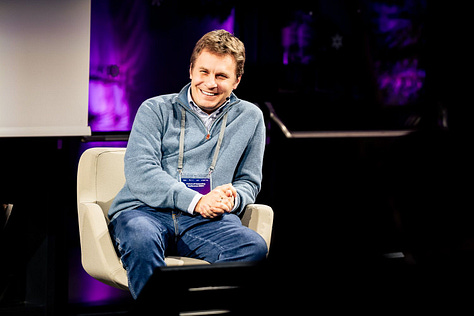

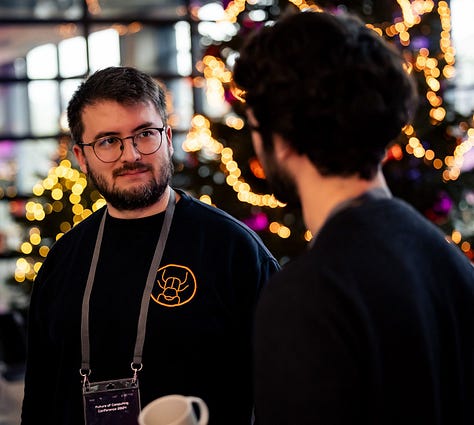
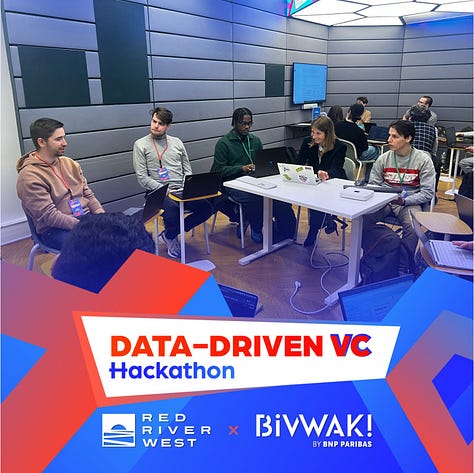
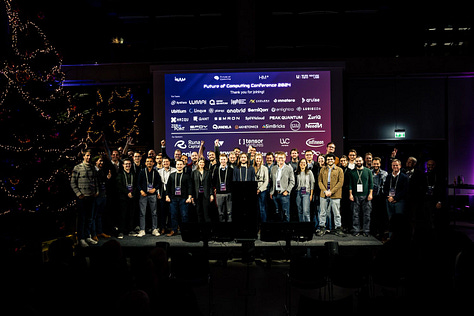

Runa Data Team won “The Best Code” award at the Data-Driven VC Hackathon
Runa hosted Open Source Beers in San Francisco
Our deep tech team participated in the Future of Computing event in Munich
We supported {Tech: Europe} event in Berlin
Runa Team participated in Slush tech event in Helsinki
Runa Data Platform
Runa aggregates over 260 open positions from our portfolio. Here are a few recent vacancies to share with your friends:
Senior Product Manager at Lendio (Lehi, UT, USA)
VP of Engineering at Chattermill (London)
Director of People Operations at Sydecar (San Francisco)
Senior Accountant at Mambu (Remote)
Senior Full Stack Engineer at Smava (Berlin)
Runa Open Source Startup (ROSS) Index presents the fastest-growing open-source startups by GitHub stars every quarter. Here are the Top 5 for Q4:
Shardeum — an EVM-based, linearly scalable smart contract platform
RSSNext — develops Follow.is that organizes content into one timeline, providing users with a customized noise-free information hub
Black Forest Labs — develops advanced Gen AI models for images and videos
ChartDB — visualization tool for databases, enabling diagramming via a single query
ScreenPipe — screen search engine that allows analysis of screen and audio activities across enterprises










